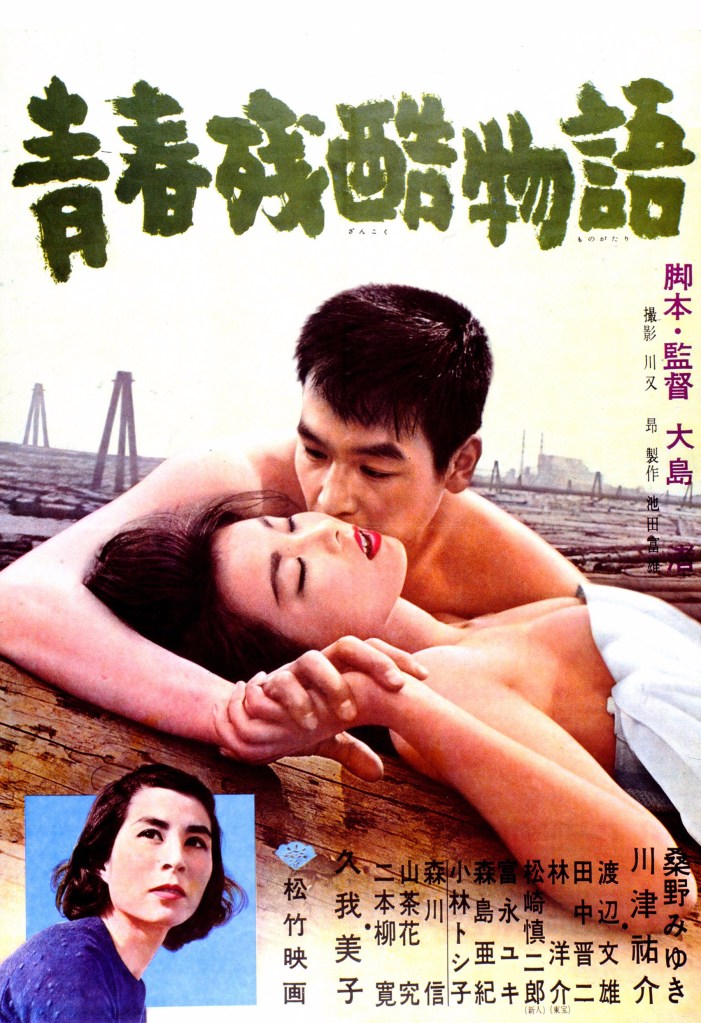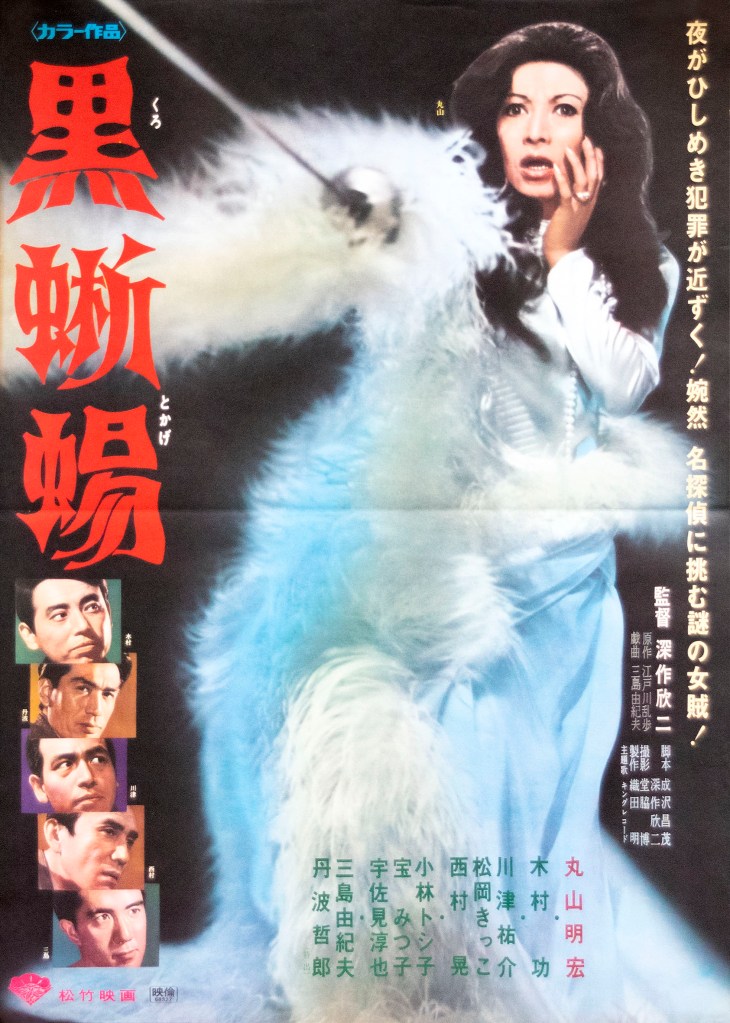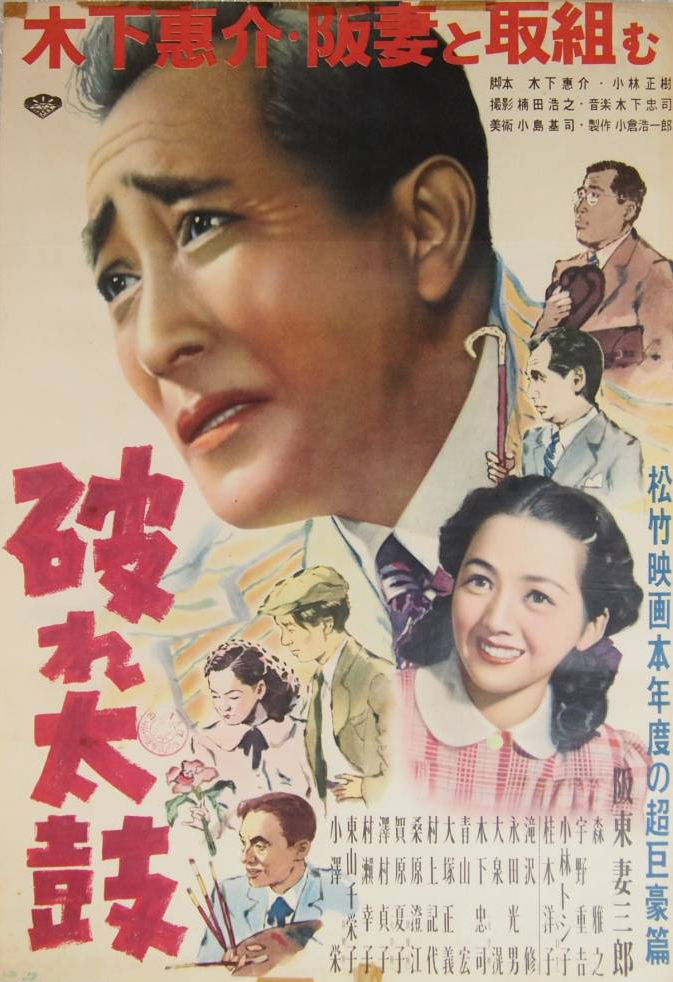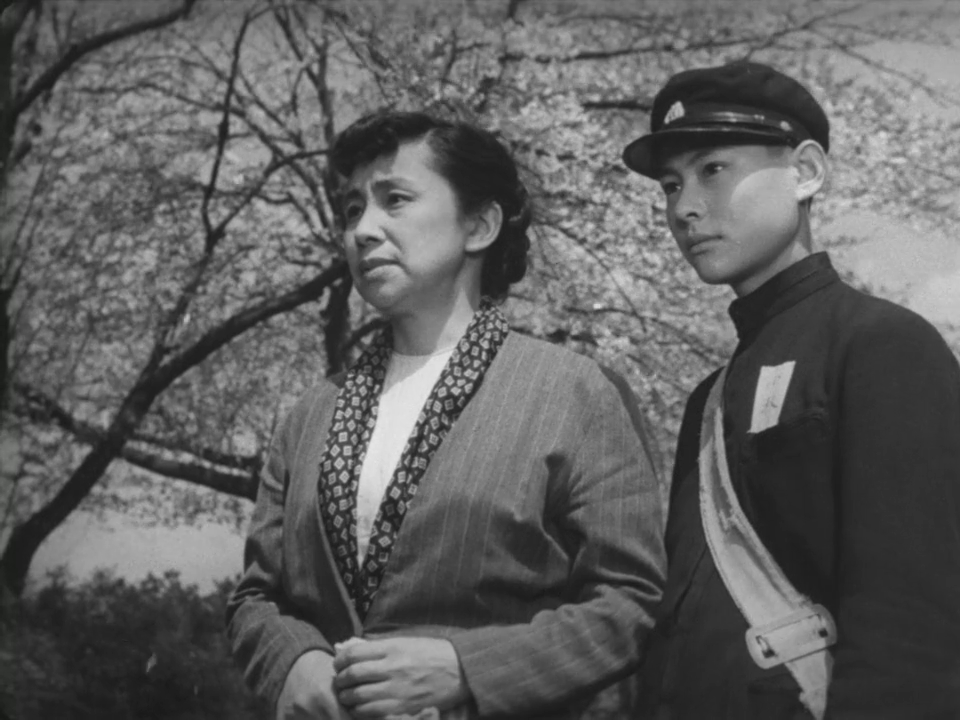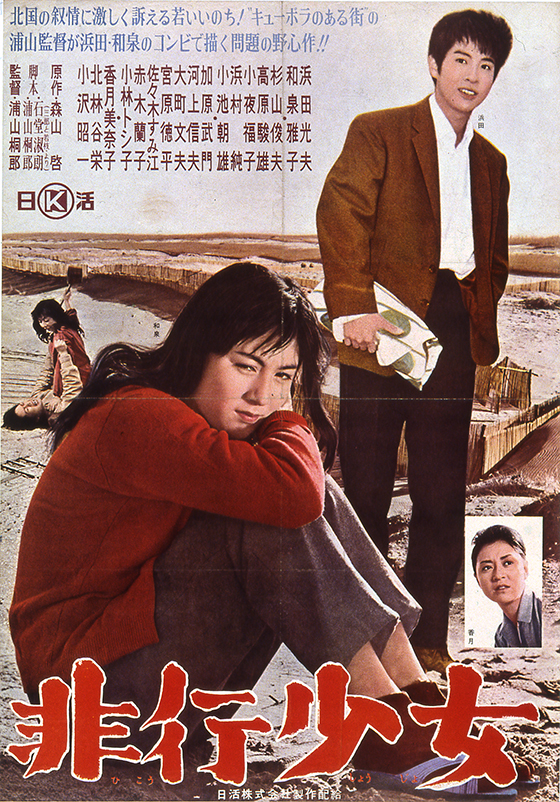
“It’s all because of poverty” according to the not-quite hero of Kirio Urayama’s Bad Girl (非行少女, Hiko shojo), and he’s right to an extent but then again not. Following his factory tale Cupola, Where the Furnaces Glow, Urayama shifts further into social realism, exploring small-town life at a midpoint in the post-war era in which the economic prosperity which was beginning to take root in a Tokyo about to host the Olympic Games had not yet been evenly distributed. The titular “bad girl” of the title is no Nikkatsu delinquent, merely a lonely young woman undermined by parental neglect and societal disdain who scandalously smokes, drinks, and steals the things she could never hope to afford.
Wakae (Masako Izumi) claims she does these things in part because she hates her step-mother (Sumie Sasaki) whom she blames for her own mother’s death after returning from the hospital to tell her father that her mother had died only to find him with another woman. Emotionally neglected, she spends her time in bars enjoying the attentions of men without perhaps understanding the dangers. It’s in trying to escape two young toughs who think they haven’t got what they paid for when they took her to the cinema that Wakae runs into childhood friend Saburo (Mitsuo Hamada), recently returned from Tokyo after the factory he was working at went bust. Now 21, Saburo has a little education and was hoping for an office job but discovers that positions are generally open only to new graduates and is advised that his best option is to work for his brother (Asao Koike) with whom he does not get on.
Where his brother is currently running for political office on a conservative ticket, Saburo is of a more liberal, progressive outlook, thinking back on the divisions in the town caused by protests against an American artillery test site which once occupied the local beach. He is extremely concerned that Wakae has been skipping school and is keen to help her study, even giving her money to help pay the fees as well as buying her a fashionable skirt to replace the worn through trousers which left her too ashamed to go. Unfortunately, Wakae loses the money after she’s accosted by a delinquent boy who tries to press her into sex work, leaving her both unable to attend school and embarrassed to see Saburo who is the only one encouraging her to think that she is worth something and can have a bright future.
Poverty is in itself only one problem, the wider one being that everyone has already decided that Wakae is “bad girl” and that bad girls aren’t worth anything. Her disinterested father (Jun Hamamura) and stepmother are content to send her to her aunt who wants to make her a geisha, reinforcing an image of herself as somehow unfit for regular society and suited only to sex work. After losing Saburo’s money, she tries to rob the school but is caught by a caretaker who feigns sympathy but later offers her money for sex and then tells everyone that she tried it on with him so he wouldn’t turn her in. This coupled with a misunderstanding that she frittered away the money he gave her for the fees makes even Saburo lose faith in her, convincing him that they must have some time apart after he agrees to take a job on the chicken farm of a family friend to get away from his brother’s conservative authoritarianism.
After accidentally setting fire to a chicken coop, Wakae is sent to a home for troubled children which turns out to be perhaps the best thing for her. Although she does not immediately bond with some of the other residents, she finds there what she never had at home – a supportive family, while the couple who run the facility do their best to instil confidence by teaching her skills that will allow her to reintegrate into regular society. Even there, however, members of the board are primed to write her off as a lost cause, just another “bad girl” not worth the effort. Only the head of the facility argues the problem is that no one’s ever given her a chance and if no one ever does then she’ll never have the opportunity to prove them wrong.
Meanwhile, many of the other girls find themselves in the same position. Wakae’s friend Tomiko (Shizuka Yoshida) who ran away when she discovered that her parents were going to sell her, believes her future is hopeless because she’ll never be able to escape the “bad girl” label, but given courage by her time at the centre Wakae is able to tell her to stay strong, because you’ll never know if you don’t try. Wakae becomes an uncomfortable standard-bearer for the others, her eventual graduation another sign of hope but also perhaps a burden in knowing that if she fails to capitalise on her success she will only deepen their sense of despair.
Yet her path forward begins to take her away from Saburo who makes a late night, romantic visit to the centre to apologise and tell her he’ll be waiting for her when she gets out. After a crisis of his own in which he too commits a crime in an attempt to buy a better future only to return beaten both literally and spiritually, Saburo has perhaps given in, agreed to work for his ultraconservative brother and bought his line of earnest hard work as the only path towards salvation. Wakae decides to take a promising job offer in Osaka and to leave without saying goodbye in case Saburo tries to convince her to stay local. That’s something he eventually tries to do in a last minute station dash, leaving Wakae torn and confused, enduring a public breakdown in a train station cafe literally stuck between one place and another.
Saburo had complained that his problem was that he didn’t know what to do, confused by the volatile post-war society. Rather than a source of salvation he becomes a feckless suitor who can offer only a vague ideal of “love”, unable to protect Wakae and perhaps selfishly holding her back. As she tells him, she has made her decision, but ironically lacks agency. Her destiny is still to an extent in Saburo’s hands in his desire either to trap or free her. Meanwhile, there is also something insidiously uncomfortable in the fact that the only way to escape her “bad girl” image is by becoming economically productive, redeeming herself through honest hard work, while the desire to reject the label so totally also tacitly reinforces the idea of there being such a thing as a “bad girl” and that “bad girls” are worthless. Perhaps Saburo’s brother wins after all in his aspirational conservatism and its insistence on properness and industry. Nevertheless, Urayama leaves Wakae in a better place than we found her, given the confidence to pursue an individual destiny in the knowledge that she is not worthless, is deserving of love and happiness, and has a place to which to return as she makes her way into a promising post-war future.


